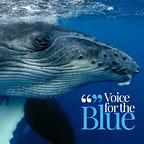Every two minutes, somewhere in the world, a dolphin or porpoise dies in fishing gear.
That’s not a campaign slogan. It’s the best estimate we have from scientists who’ve tracked the hidden toll of modern fishing.
In European waters alone, more than 35,000 harbour porpoises are killed each year. Nearly 100 every single day. In the UK, more than a thousand dolphins and porpoises die annually, about three animals a day off our own coasts.
This is bycatch. The quiet bleed of life that happens when fishing gear catches the wrong species.
Why it Happens
Bycatch persists because of three things.
Gear: Gillnets, longlines, and trawls are efficient but indiscriminate. A gillnet is an invisible wall underwater. A longline is a floating gauntlet of baited hooks. A trawl bulldozes the seafloor, scooping up everything.
Monitoring: If no one is watching, deaths don’t get recorded. What doesn’t get recorded rarely drives policy.
Waste: Ninety-two percent of fish discarded in European waters come from trawlers. Wrong size, wrong species, wrong quota, hauled up and dumped, dead.
The Hidden Casualties
Some species are now on the edge. The Baltic Proper harbour porpoise is down to fewer than 500 individuals. Bycatch is their number one threat.
In the Bay of Biscay, winters bring thousands of common dolphins ashore with net marks on their bodies. In bad years, 6,000 to 10,000 are lost.
And it’s not only mammals. Around 200,000 seabirds die in European waters each year after diving on hooks or swimming into nets. That’s more than 500 every day.
Picture it, a shearwater skims the waves, spots a glint of bait, and plunges. The hook catches. The line drags her down. She will never surface. Multiply that image hundreds of times, every single day, and you start to see the scale.
Globally, FAO estimates put discards at 9 to 11% of all marine catch, around 9 million tonnes of fish and wildlife wasted annually.
What Works
The solutions exist.
Pingers clipped to nets warn porpoises away, cutting deaths by more than 70%.
LED lights make nets visible to turtles, slashing turtle bycatch by 60–80%.
Hook-shielding devices keep longline hooks safe until they sink below seabird diving depth, cutting seabird deaths by 95%.
SharkGuard uses mild electrical pulses to deter sharks and rays from hooks, reducing blue shark bycatch by 90%.
None of this is theoretical. These tools are available now.
The Real Barrier
The problem isn’t technology. It’s transparency.
New Zealand already publishes quarterly bycatch totals, drawn from cameras and observers. In April to June 2025, they logged 32,613 fishing trips and reported 765 seabirds captured. That’s what accountability looks like.
In Europe, the Commission has had to take eight countries to court for failing to monitor dolphin bycatch. The laws exist. The enforcement doesn’t.
What needs to change
Consumers: Bycatch is baked into the tuna steak, the scampi, the fish fingers you buy. Ask questions. Does your supermarket demand cameras on boats? Do they require proven bycatch-reducing gear? Do they exclude trawl-caught fish from sensitive areas? Promises don’t matter. Proof does.
Governments: Mandate cameras on all high-risk fleets. Set mortality caps tied to science. Enforce closures when limits are breached.
Industry: Adopt the gear that works. Prove it with data, not slogans.
Bycatch is not the price of seafood. It is the price of delay.
The solutions exist. The laws exist. What’s missing is urgency.
Every two minutes, another dolphin or porpoise dies. More than 500 seabirds vanish daily in European waters.
These aren’t sad statistics. They are choices, written into gear, policy, and practice.
And because they are choices, they can change.
I record Voice for the Blue because ocean stories deserve to be heard. I write Ocean Rising so they land in your inbox each week, free and independent.
This is only possible thanks to a small group of paying subscribers. Their support keeps it free for students, activists and communities worldwide.
If you find value here, please consider joining them.
I’ll be back in your ears next week.
- Luke












